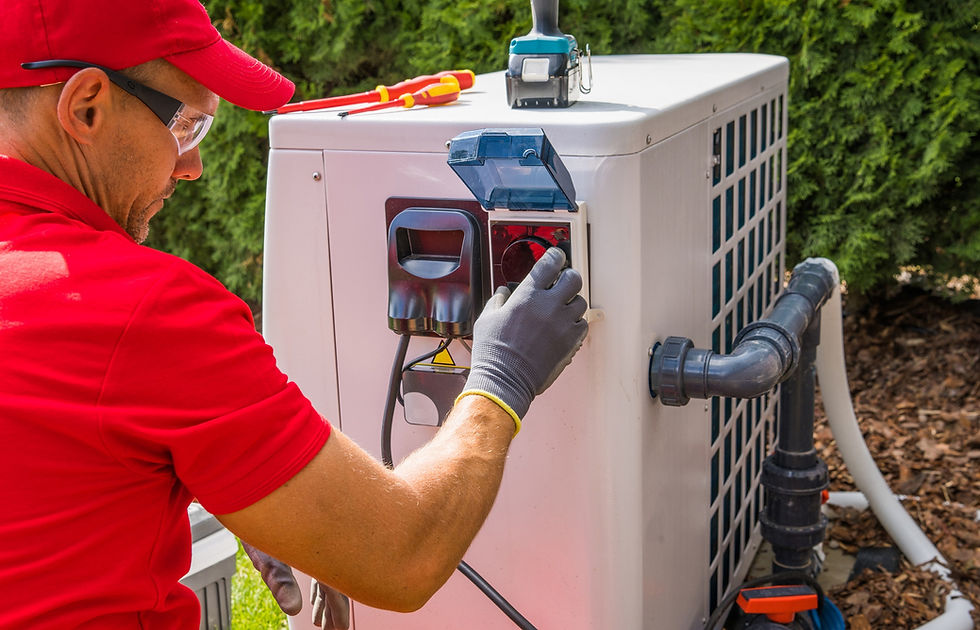Essential Spring HVAC Maintenance Checklist for NY & NJ Homes
- bryanedwards651
- Apr 14, 2025
- 3 min read
Warmer days are approaching, and as a homeowner in New York or New Jersey, you know how quickly spring can turn into summer. That means it’s time to ensure your HVAC system is in tip-top shape before the temperatures climb. After all, no one wants to deal with a surprise AC breakdown during a heatwave!
This guide outlines an essential spring HVAC maintenance checklist for NY and NJ homes. It offers practical tips for keeping your system running, reducing your energy bills, and extending the life of your equipment.
Why Spring HVAC Maintenance Matters
If you're wondering why spring is the ideal time for HVAC maintenance, here’s why! The seasonal transition from heating to cooling puts extra demand on your system. Dust and wear can build up during the colder months, and skipping maintenance now could lead to inefficient performance or costly repairs later.
Following this checklist will ensure your HVAC system can handle the sweltering Summers common to NYC and New Jersey while keeping your home comfortable and energy-efficient.
Step-by-Step Spring HVAC Maintenance Checklist
Here are the key tasks every NY and NJ homeowner should check off this spring to prep their HVAC system for the months ahead.
1. Change or Clean Your Air Filters
Dirty air filters can reduce airflow and force your system to work harder than necessary, increasing energy consumption. Here's what you should do:
Check your filters at least once a month, especially during peak usage seasons.
Replace disposable filters with a new one, or clean washable filters thoroughly with water and a mild detergent.
A clean filter improves air quality, which is essential for NY and NJ residents who deal with seasonal pollen and allergens in spring.
2. Inspect Your Thermostat Settings
When was the last time you adjusted your thermostat program? Spring is the perfect time to revisit this.
Program a cooling schedule that avoids running the AC when you’re not home. Consider setting it a few degrees higher daily to save on energy costs.
If you don’t have one already, consider upgrading to a smart thermostat. Features like daily schedules and remote temperature adjustments are perfect for tech-savvy NY and NJ households.
3. Clean Air Vents and Registers
Over winter, vents and registers can accumulate dust and debris.
Use a vacuum attachment to eliminate any visible dust or pet hair.
Ensure that furniture, rugs, or curtains block none of the vents. Proper airflow is critical to efficient operation.
4. Check Your Outdoor Unit
The outdoor condenser unit is just as important as the equipment inside your home.
Clear away any dust, such as leaves, branches, or dirt, that may have collected around the unit during winter.
Look for any signs of damage to the fan, fins, or coils.
Trim plants within a two-foot radius to prevent obstructions and maintain proper airflow.
5. Schedule a Professional Inspection
While some maintenance tasks are DIY-friendly, certain checks should be left to a licensed HVAC technician.
A professional tune-up ensures that your compressor, refrigerant levels, and electrical components are in peak condition.
Regular service appointments can catch minor issues before they become expensive repairs, saving you money in the long run.
Many HVAC companies in NY and NJ offer spring maintenance packages that include cleaning, testing, and system optimization. If you’re due for an inspection, now’s the time to book one!
6. Inspect Ductwork for Leaks
Poorly insulated ductwork can cause up to 30% of energy loss, driving utility bills.
Walk through your home and feel for air leaks around duct joints.
Seal visible gaps with HVAC tape, or consider having a professional conduct a full duct inspection.
Properly sealed ducts improve airflow and ensure that each room is adequately cooled.
7. Test Your Air Conditioner
Before the first hot day hits, could you turn on your AC to test its performance?
Please pay attention to the system’s responsiveness and whether it cycles on and off correctly.
Check that the air blowing from the vents feels calm and consistent. Any strange noises or odors are red flags that require professional attention.
Common HVAC FAQs
Why does my HVAC system seem less effective than last year?
The issue may be dirty filters, duct leaks, or an aging system. A professional maintenance inspection can accurately identify the problem and enhance your home's comfort.
How often should I replace my air filters?
Typically, every 1-3 months. Houses with pets may need more frequent changes, especially during pollen-heavy spring months in NY and NJ.
When should I upgrade my HVAC system?
Most HVAC systems last 10-15 years. If you’re facing frequent repairs or unusually high energy bills, it might be time to consider upgrading to a new, energy-efficient system.






Comments